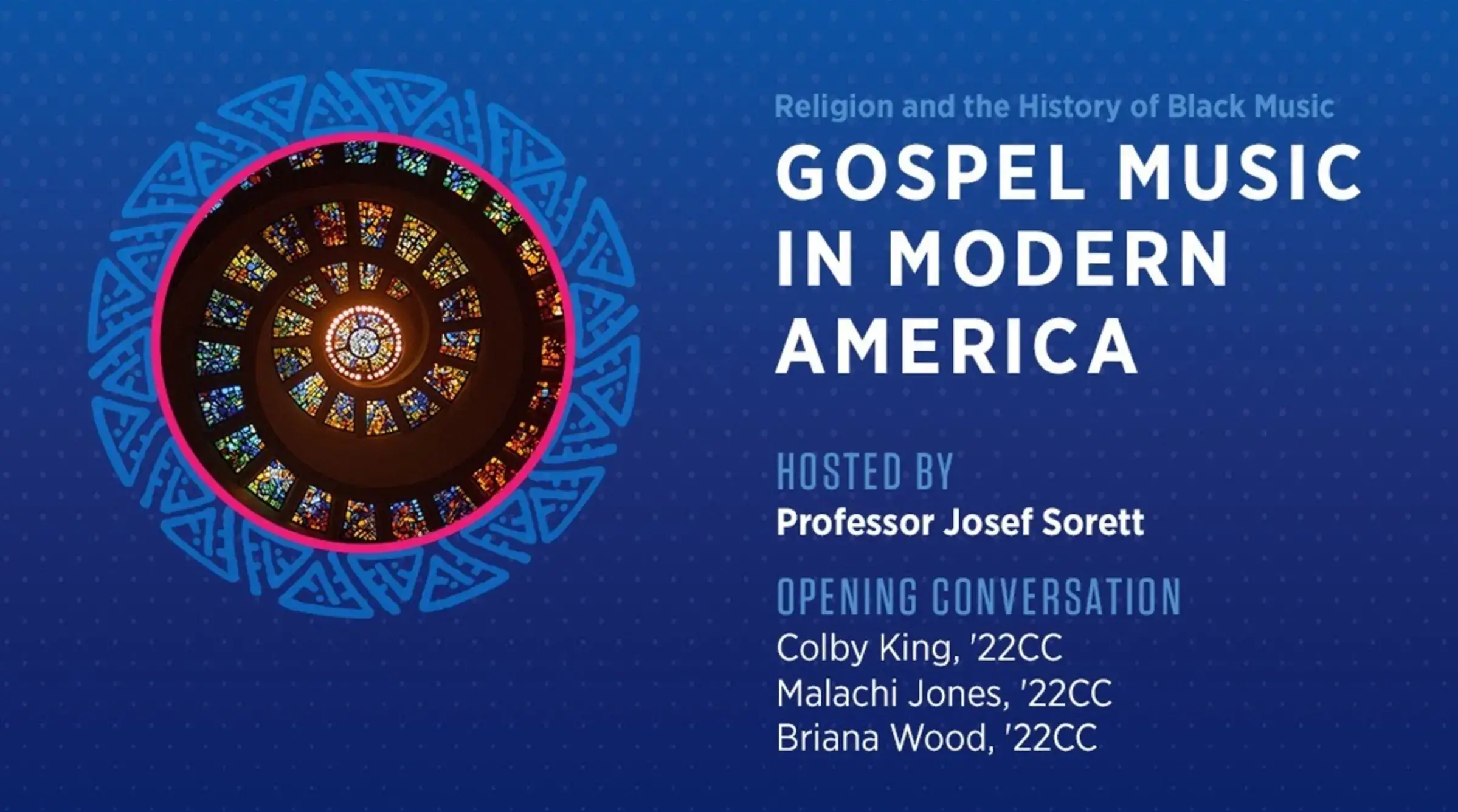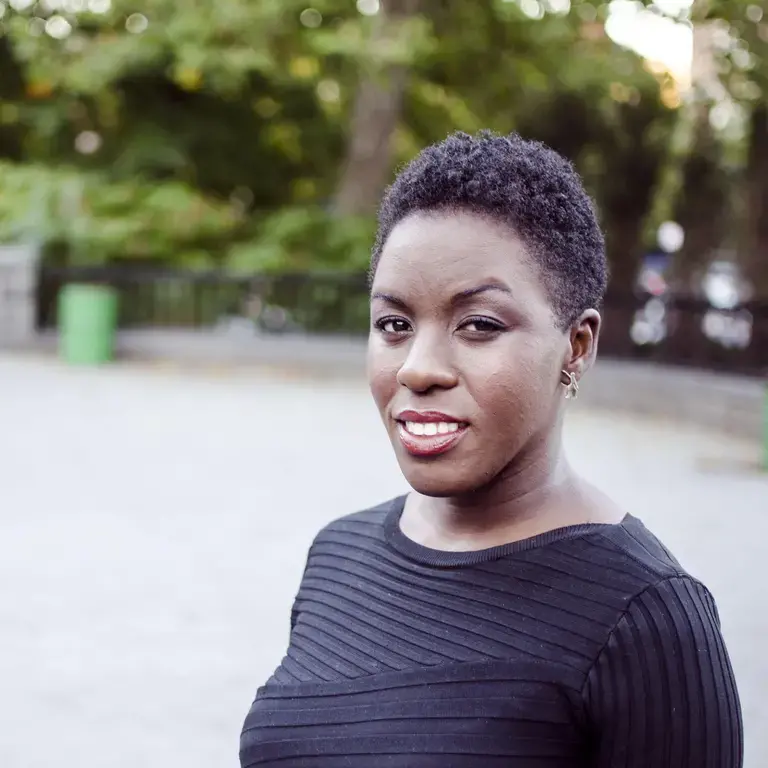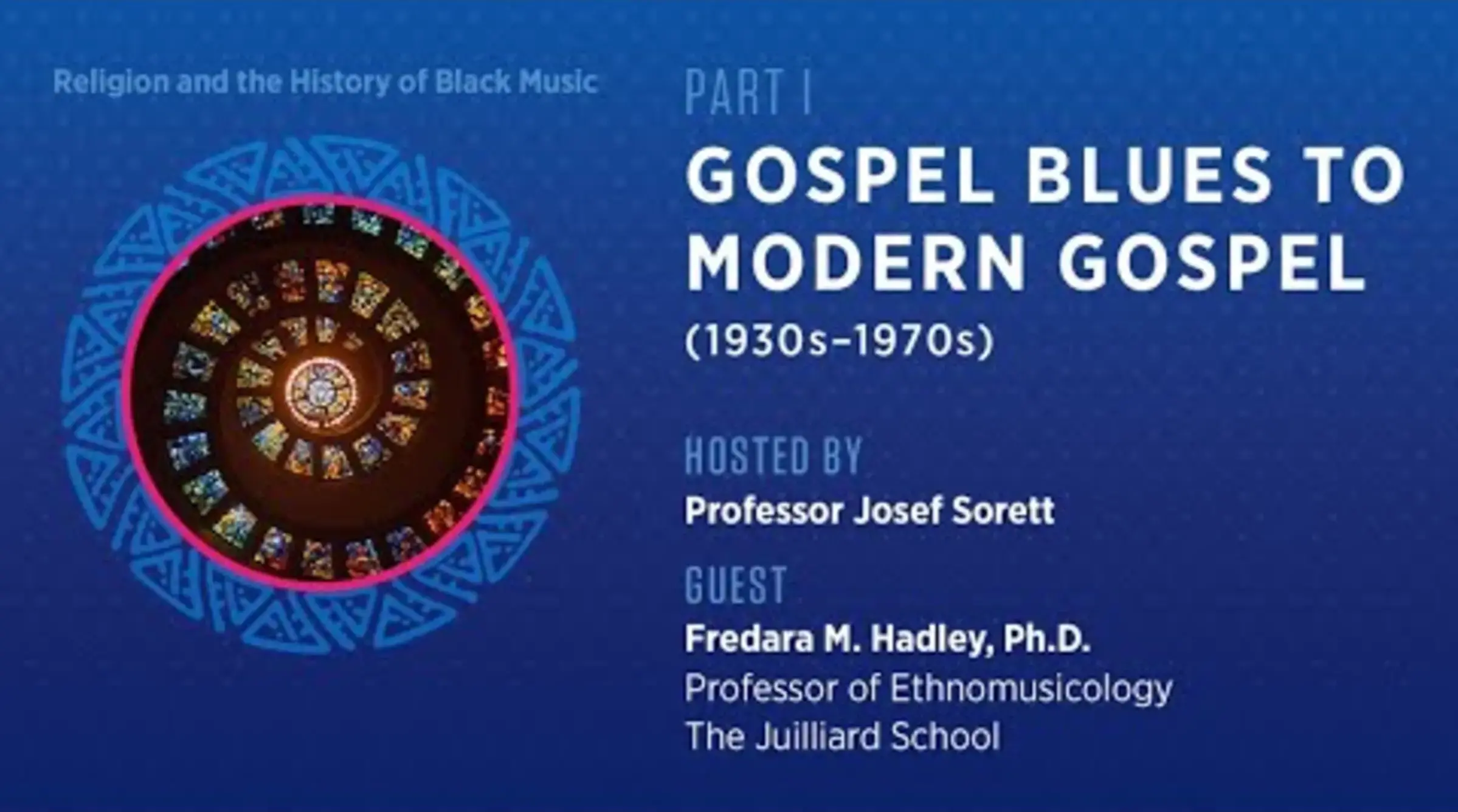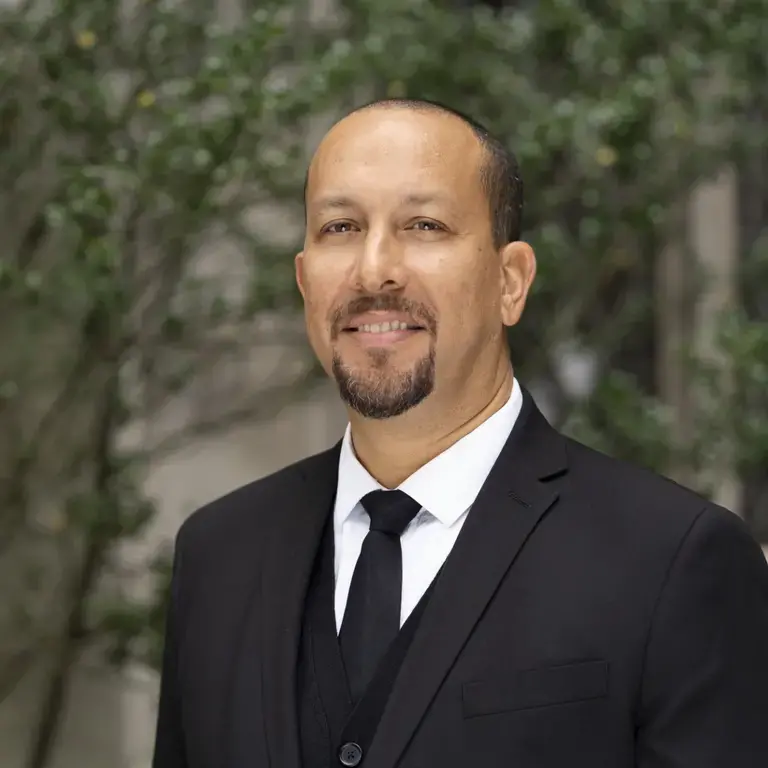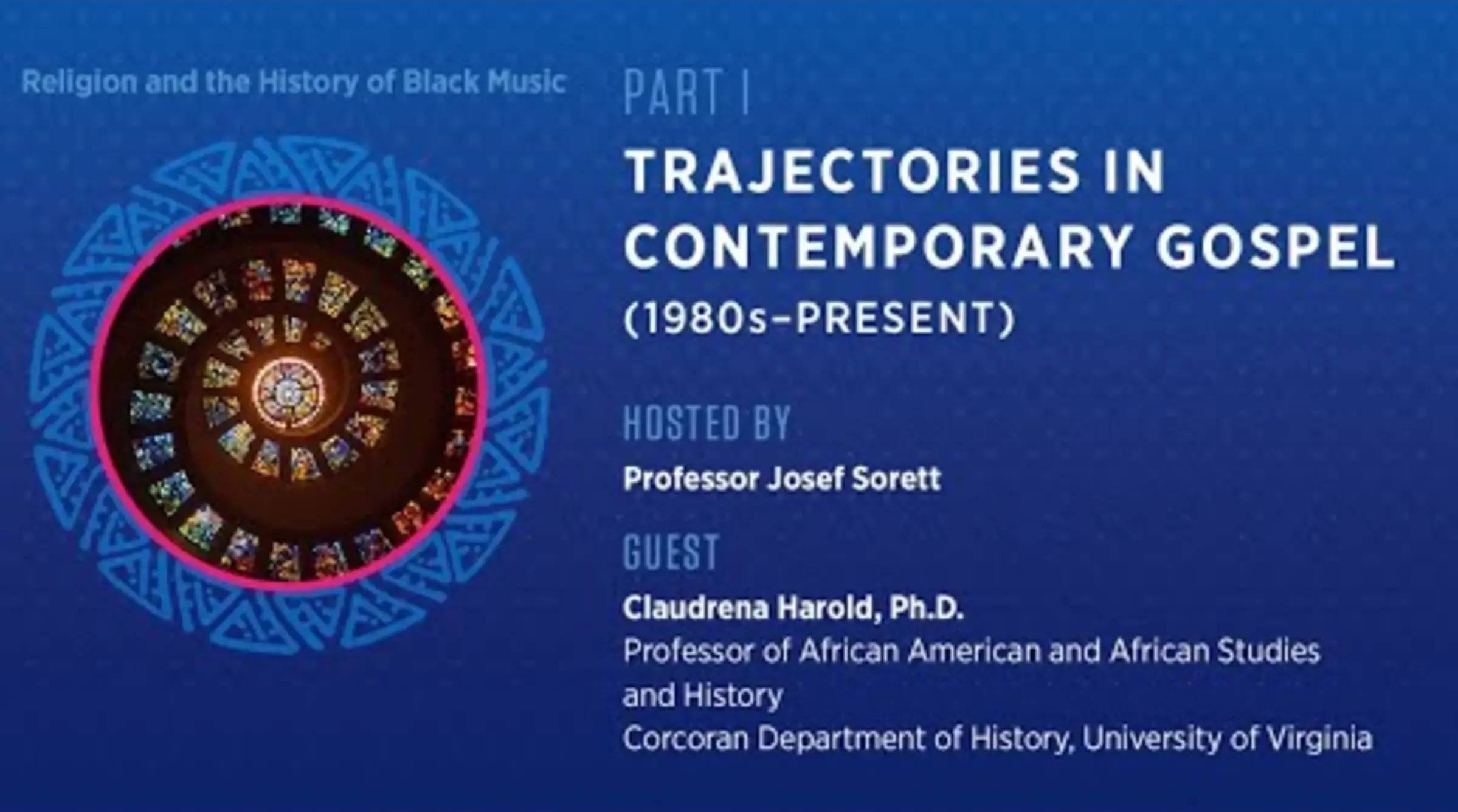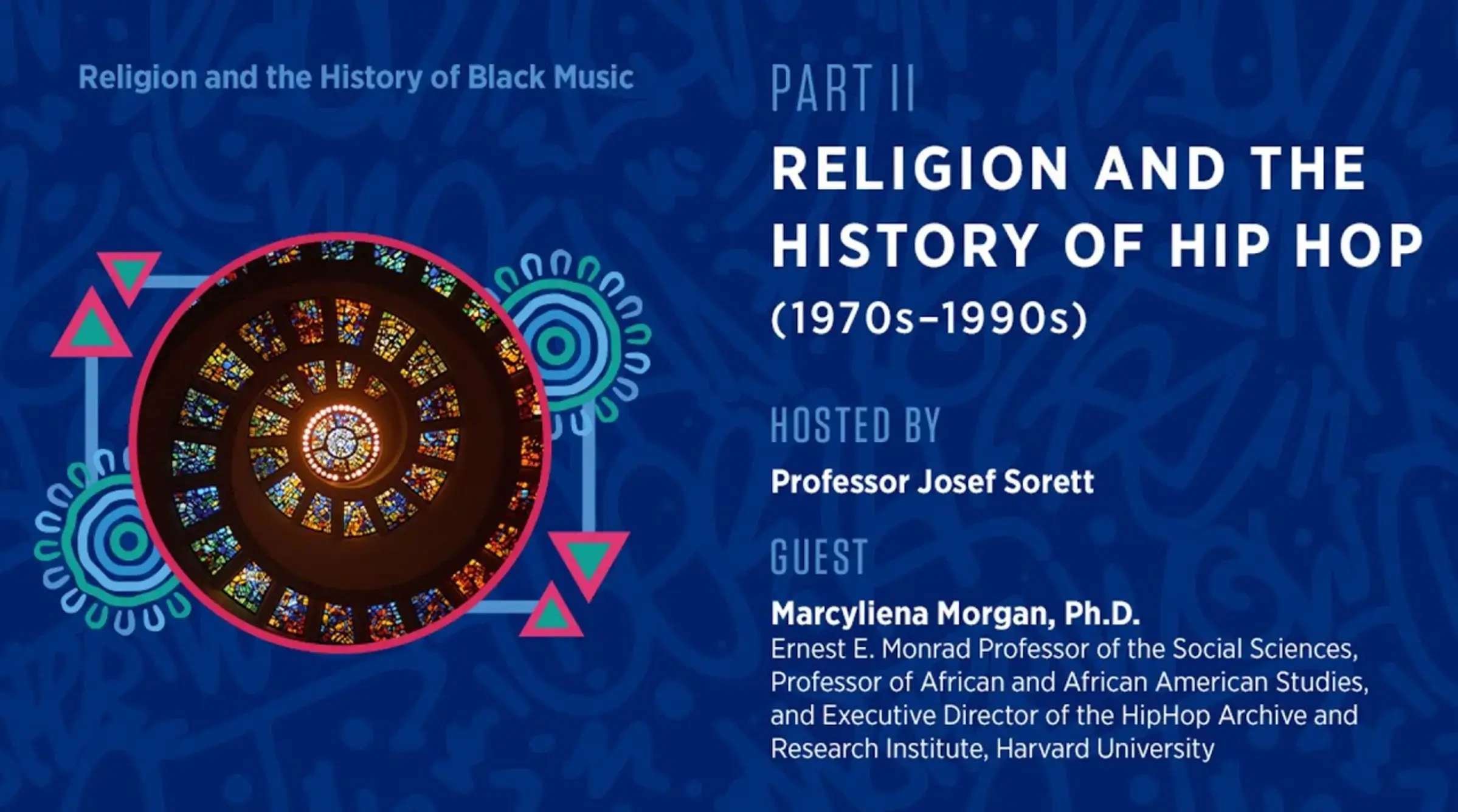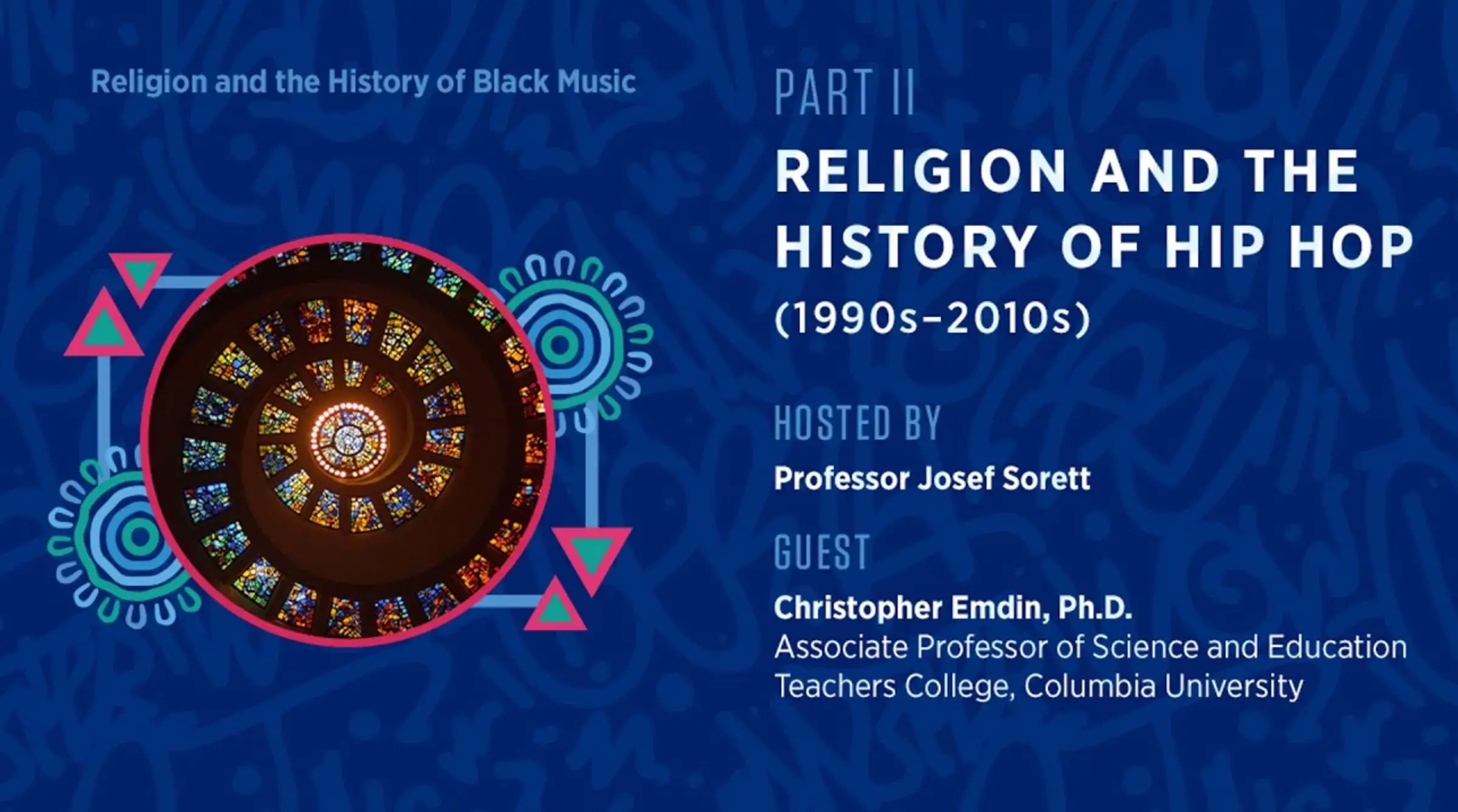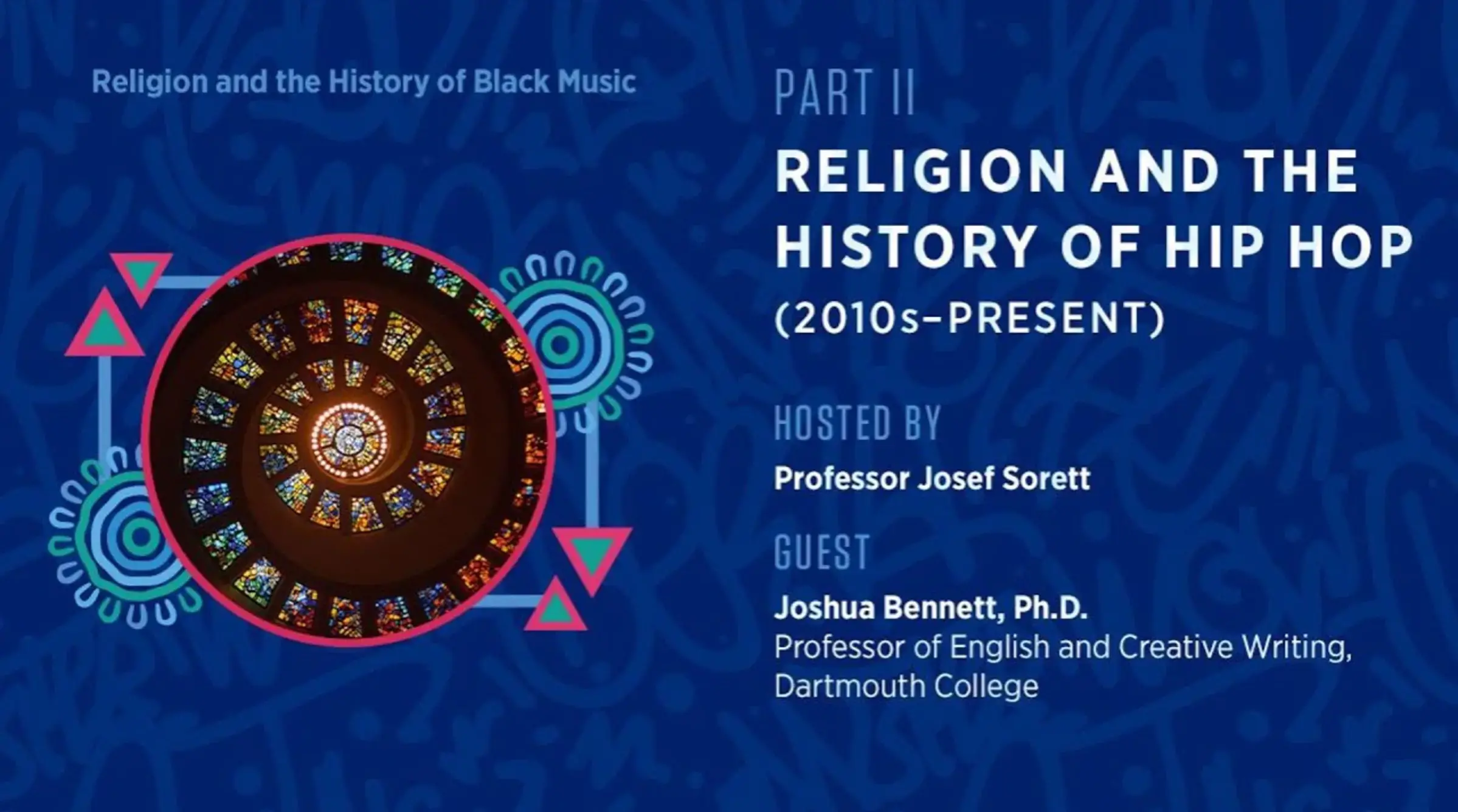This summer, Columbia Professor of Religion and African American and African Diaspora Studies Josef Sorett led a dynamic live series, Religion and the History of Hip Hop. Guests including Juilliard Professor Fredara Hadley, UVA Professor Claudrena Harold, Harvard Professor Marcyliena Morgan, Teachers College Professor Christopher Emdin, HipHopEd's Timothy D. James, Dartmouth Professor Joshua Bennett, and Columbia College students have listened in, song by song, and lent their insights on the early years of Gospel music and its influence on Black music today.
Professor Sorett introduced the series with three of his past students, Columbia undergraduates Malachi Jones, Colby King, and Briana Wood, who also co-host a campus radio show on WBAR, the college radio station of Barnard College. The opening conversation surveyed the full span of the religion and the history of Black music, and students explained why they chose the songs they chose.
The panel discussed Chance the Rapper’s “Sunday Candy,” and the impact of hearing the song in the mainstream; Destiny’s Child’s version of “Amazing Grace,” and the album’s gospel-influenced harmonies; Kirk Franklin’s “Revolution,” and how Franklin’s music gives Black church the aesthetics of hip hop; Marvin Gaye’s iconic hit “Mercy Mercy Me”; and Aretha Franklin’s ability to bridge the divide between the secular and the spiritual. The group discussed the tension between gospel as a form of worship and as a source of entertainment.
Columbia College student Colby King selected Destiny’s Child’s “Outro (Amazing Grace)” to listen to and discuss, noting that it was on the same album as hits like “Say My Name.” “It’s part of this tried-and-true tradition of R&B,” added Professor Sorett, “of an album full of what we think of as secular tracks, but with gospel music there to sort of recognize the black church roots of many black recording artists.”
Juilliard Professor and Ethnomusicologist Fredara Hadley joined the second event in the series on Gospel Blues to Modern Gospel, from the 1930s through the 1970s. Dr. Hadley discusses The Golden Gate Quartet's 1946 song "God's Gonna Cut You Down" as an example of a spiritual that set the tone for other emerging harmony groups. They moved to Sister Rosetta Tharpe and her 1956 version of a hymn, "Precious Memories." Professor Hadley asked listeners to pay attention to the vocals of the Caravans' Inez Andrews, and how she adapted the spiritual into a more rock n' roll style.
She moved to Clara Ward's gospel-blues adaptation of "Twelve Gates to the City," and how the sacred and the secular interplay in "Wade in the Water." Professor Hadley underscored the importance of understanding how much modern Black music is influenced by the history of the church as the community’s social center. The conversation concluded by listening to Little Nas X, and exploring the idea of Black U.S. artists having a growing sense of safety in their artistic expression.
This song [“Twelve Gates to the City”] sounds like the city to me. It sounds like Black people who have migrated from the South and anchored themselves in the North and who have both been changed by and changed the cities in which they find themselves, and all of that comes together for me in “Twelve Gates.” It’s talking about the heavenly city but you could also be talking about the literal city, so that’s really interesting to think about in this song; the layers of meaning.”
UVA Professor Claudrena Harold, historian and author of When Sunday Comes: Gospel Music in the Soul and Hip Hop Era, joined the third event in the series to discuss developments and trajectories in Gospel music from the 1970s to the present--the period typically considered to be the Gospel genre’s “golden age.”
Professor Sorett and Professor Harold listened to Aretha Franklin's "Precious Memories," and Professor Harold introduced the idea that the song is a realization of Franklin’s mentor James Cleveland's idea of spirit, or unity, music. "All the risen live in 'Precious Memories,'" said Dr. Harold. They listened to Andrae Crouch and talked about how he helped shape the sound of contemporary Christian music, followed by Walter Hawkins and the significance of the choir and instrumentation at play in his Love Alive series of recordings.
The conversation moved to Pastor Shirley Caesar's 1988 "Hold My Mule," introduced as a classic sermon-style song. Pastor Shirley Caesar is a former Caravans singer whose career covered rhythms of jazz, blues, country, and disco. They covered Kirk Franklin's "Revolution" and how it demonstrated the evolution of the art form, and how Franklin infused hip hop in his music, but never moved away from the gospel sound.
When we think about civil rights and post-civil rights, hip-hop is cast often in its emergence as both a sonic and a moral break from the music of previous generations of Black folk, but that was never actually the case.”
Professor Harold reminded listeners that the way Chance the Rapper defines himself as an artist is “part of a deeper tradition” and that there’s always been a strong link between Black music and religiosity. “It shouldn’t surprise us with a Chance or even a Kanye,” Professor Harold said. “If your understanding of Black culture is limited to the secular, then maybe some of this will seem new. But I think if you’re immersed in it, it’s not new.”
The second half of the series followed the history of hip hop from the 1970s to the present, and studied the range of religious ideas and practices that have animated the performance, production, reception, and consumption of rap music.
1970s–1990s
How did religion appear in hip hop as the genre first emerged? What was the response of religious, academic, and community leaders to the sounds of a new genre? Marcyliena Morgan, Ph.D., Harvard University’s Ernest E. Monrad Professor of the Social Sciences, Professor of African and African American Studies, and Executive Director of the Hip Hop Archive and Research Institute, joined Dr. Sorett to explore these ideas and queued up songs by DMX, MC Hammer, the Geto Boys, Bone Thugs-N-Harmony, Nas, and Kanye West.
Dr. Morgan reflected on the response to hip hop in the early 1990s, recalling how many of her peers were discounting or dismissing the roles that Black men—and, by extension, hip hop—played in ensuring Black Americans’ access to resources and opportunities as well as their protection against violence. “We didn’t give ourselves credit for all the work we were doing to make this a democracy and to make sure that we’re all protected. One of the areas in which we also didn’t really pay close attention was how important health care was to us,” she said, speaking not only of fellow academics but also some BlackAmericans who were not accepting of hip hop at the time. Whether it be the Black Power movement’s provision of breakfast and other health programs for families or 2Pac’s “Brenda’s Got a Baby” song released at the height of teenage pregnancies in the U.S., Dr. Morgan challenged the idea that Black Americans didn’t participate in health care and also acknowledged how hip hop helps to reclaim the community’s leadership on the issue.
1990s–2010s
On July 23rd, Christopher Emdin, Ph.D., Associate Professor of Science and Education at Teachers College, and Timothy D. James, Chief Visionary Officer of HipHopEd, a nonprofit that explores the relationship between hip hop and education, joined the series to discuss shifts in the religious dimensions of hip hop from the 1990s through the 2010s. They discussed North Carolina rapper Petey Pablo’s “Test of My Faith” and the role that American Southern rappers played in normalizing traditional gospel sounds in hip hop.
Petey Pablo’s debut album, “Diary of a Sinner,” openly discusses conflicts between his lifestyle and his belief system, his struggles with faith, and asks for forgiveness. Dr. Emdin and James agreed that the rapper’s approach to his lyrics talked about faith in a way that normalized the religious experience. “He takes away the glitz and glamor and brings it down to the core essence. Listen to the flow… even his rhyming patterns are more spoken word-ish, like an intentional breakdown away from the existing Petey Pablo to become Preacher Pablo,” said Dr. Emdin.
“Cars are very important in all cultures, but especially in Southern culture,” said James. “So he’s talking about having half a tank of gas, two cigarettes… he realizes that the trial he was going through was not to diminish him, but to refine him as a test of his faith.” The conversation continued, listening and discussing The Game and Lil Wayne’s “My Life,” Joe Budden’s “Pray for Me,” Jay Electronica’s “Eternal Sunshine (The Pledge),” and Chance the Rapper, Jay Electronica, My Cousin Nicole’s “How Great.”
2010s–present
Joshua Bennett, Ph.D., Professor of English and Creative Writing at Dartmouth College, joined Dr. Sorett for the final event on August 4. They thought through songs such as Freeway’s “What We Do,” Kendrick Lamar’s “Sing About Me, I’m Dying of Thirst,” and several others that came at the intersection of hip hop and Black religious imagination--not only in the Christian tradition but also the Muslim tradition. In curating his playlist, Dr. Bennett pondered the socio-political context of the time period—a time when the U.S. has elected its first Black president juxtaposed with the economic conditions many Black Americans found themselves in at the time. He borrowed poet Simone White’s summation of rapper Vince Staples’ ethos to describe the perspectives of many rappers during this time:
In reflecting on “What We Do,” Dr. Bennett points out that despite Freeway’s Muslim faith, he is rapping about committing crimes to provide for his family. The hook’s acknowledgment that “even though what we do is wrong,” along with Freeway’s admission that “if the heat stop working, then my heat start working, i'ma rob me a person” captures the complexity of character but also reconciles crime as a necessary evil in response to the very limited options available to him. “That gets us to the core of the question: how do Black religious practice and Black religious imagination meet the material needs of Black people in the modern world?”
In “Alan Forever,” Chicago rapper Lupe Fiasco, who is also Muslim, imagines an afterlife for a young immigrant boy who was killed in 2015: “He just imagines this robust plane, with the moon as the disco ball, they get to be in submarines with dinosaurs... I think one of the roles of the poet is to dream of a world where that could have gone another way, and I think also imagine the best possible world for them in the hereafter.”
